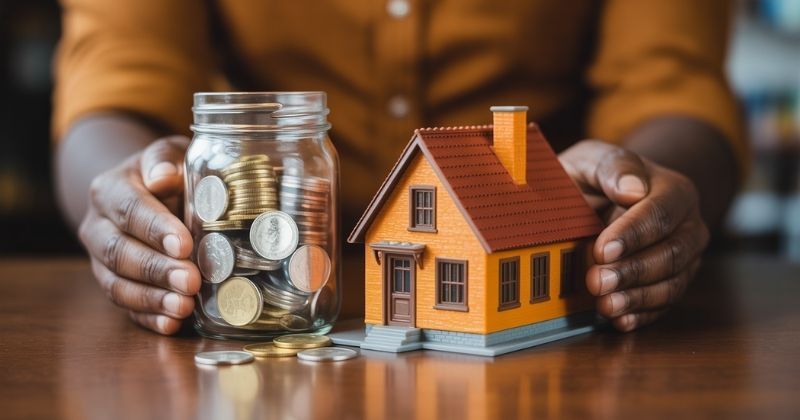
Saving for a home in South Africa involves more than just setting money aside for the deposit. Buyers need to account for various upfront costs, ongoing fees, and unexpected expenses that can affect affordability. Whether you’re a first-time buyer or upgrading to a new property, knowing how much to save can help you plan better and avoid delays.
Key Takeaways
- Total Savings Needed: Aim to save 15% to 25% of the property’s value, which includes your deposit, legal costs, and a financial buffer for unexpected expenses.
- Deposit Benefits: A larger deposit reduces your loan amount, lowers monthly repayments, and may help you qualify for better interest rates.
- Extra Costs to Budget For: Prepare for hidden fees such as transfer duty, legal charges, insurance, and moving costs, which can significantly add to your total spend.
About Arcadia Finance
Easily apply for a loan through Arcadia Finance. You’ll pay no application fees and have access to 19 reliable, NCR-compliant lenders. Get the financial support you need with a fast and transparent process.
Understanding House Deposits in South Africa
What is a “deposit” or “down payment”? In South Africa, when buying a home through a bond (home loan), the bank will usually require you to pay part of the property price upfront. This is known as the deposit, and it typically ranges from 10% to 20% of the property’s value. Some banks may ask for more, especially if your credit record is weak or the loan is considered high risk.
A larger deposit lowers the loan amount, which can reduce your monthly repayments and improve your interest rate. It also shows financial readiness, which lenders view positively. The deposit is your first contribution towards owning the home, and it directly affects your loan terms and affordability.

Breakdown of How Much You Need to Save
When thinking about buying a home in South Africa, your total savings goal should include more than just the deposit. To make sure you’re fully prepared, aim to save around 15% to 25% of the home’s purchase price. This ensures you’re covered for all upfront costs and gives you peace of mind.
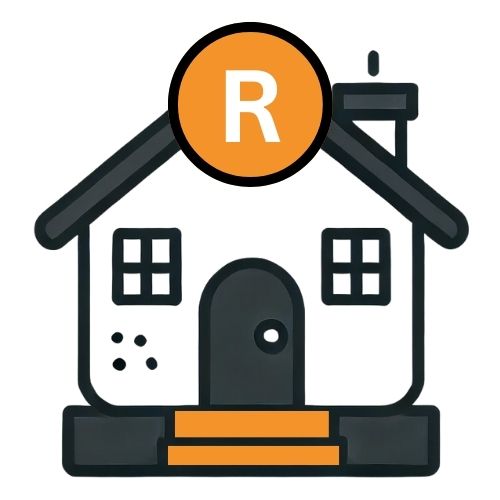
1. The Deposit
Most South African banks prefer that buyers put down a deposit of between 10% and 20% of the property’s value. While it is possible to get a 100% bond, especially if you’re a first-time buyer, it is often harder to qualify and may come with higher interest rates.
If you are purchasing a home for R1 000 000, you should aim to save at least R100 000 for a 10% deposit. A larger deposit will reduce your monthly bond repayments and can improve your chances of loan approval.
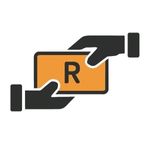
2. Upfront Costs Beyond the Deposit
In addition to the deposit, there are several upfront costs that can add significantly to your savings target. These typically include:
- Transfer duty, which applies to properties over R1 000 000
- Bond registration fees, paid to register your home loan
- Transfer attorney fees, which cover the legal work of transferring the property
- Bank initiation fees and valuation fees
Altogether, these expenses usually come to around 8% to 10% of the purchase price. So, for a home worth R1 000 000, you may need to budget a further R80 000 to R100 000.
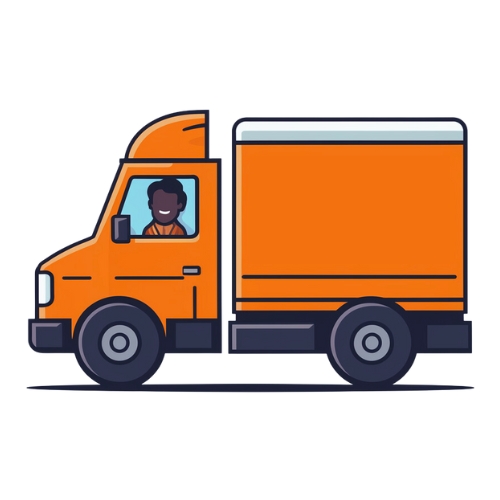
3. Moving and Settling In
Once the legal process is complete and you receive the keys, you’ll likely face several post-purchase costs. These may not be as obvious, but they can quickly add up.
You’ll need to pay for movers, initial repairs, cleaning and perhaps some basic furniture or appliances. Municipal rates and taxes will also begin immediately, along with any levies if you’ve bought in a complex. It’s a good idea to have at least R20 000 to R30 000 set aside as a cushion for these early costs.
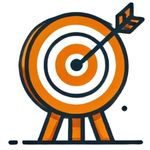
4. A Realistic Total Savings Goal
If we take a R1 000 000 property as an example, here is what your savings goal could look like:
- Deposit (15%): R150 000
- Legal and transfer costs (9%): R90 000
- Emergency and settling-in fund: R30 000
- Total: Approximately R270 000
This figure may vary depending on whether you qualify for a zero-deposit bond or government assistance, but it gives you a sensible starting point for planning.
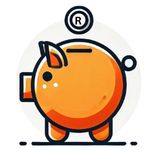
5. How to Save Effectively
Saving a large amount can feel overwhelming, but consistency and discipline make all the difference. Start by creating a monthly savings plan. Many financial experts recommend saving at least 20% of your income, if possible.
Open a separate account for your home deposit so the money is not easily accessible. Set up an automatic transfer on payday to build your savings without thinking about it. Cutting down on non-essential expenses such as takeaways, subscriptions and impulse purchases can also help free up extra funds.
You might also consider joining a stokvel or other group savings scheme. These community-based savings groups are popular in South Africa and can provide structure, support and motivation.
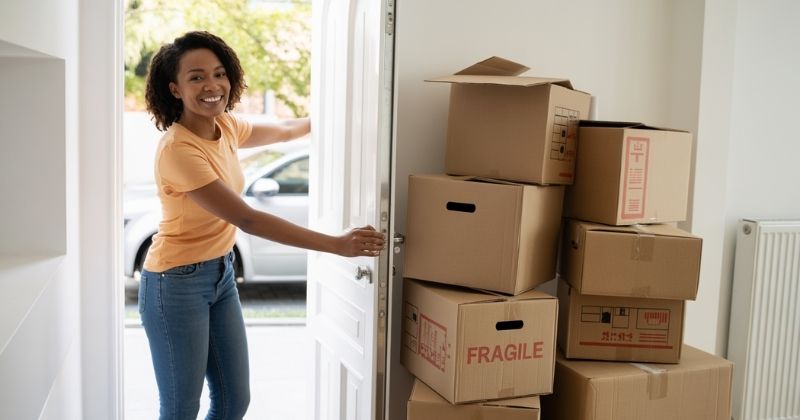
Tips When Saving Money to Buy a Home
Work Out What You Can Afford
Use a reliable online affordability calculator to get an estimate of what kind of home loan you might qualify for. For a more accurate result, speak to a bond originator from BetterBond, as they can help assess your affordability based on your full financial profile. Since banks pay close attention to your credit score and payment history, an originator can guide you on any steps you should take before you apply. This gives you a better chance of being approved for a home loan at a good rate.
To improve your chances of qualifying for a larger loan amount, reduce or close any existing debt accounts, including credit cards and retail store accounts. Avoid late payments and try to have some money left in your account at the end of each month. Banks will usually review your financial behaviour over the last six months, so keep your credit history clean during this period.
Plan For Possible Interest Rate Increases
Although the current interest rate may be low, it’s sensible to expect that rates could go up in the future. When planning your loan, make room in your budget to accommodate an increase of at least 1%. A simple guide is to allow for an additional R100 per R100 000 borrowed. If you’re borrowing close to your limit, even a small increase in the rate can put pressure on your monthly budget. Having a buffer in place can help avoid financial strain if this happens.
Search Within Your Price Range
Once you know your budget, you can begin searching for a home. Location is one of the most important factors to look at. It affects not only your daily convenience but also the property’s future value. Try to find homes near schools, shopping centres, hospitals, and public transport routes. These features tend to help properties hold or grow in value over time.
Also look for homes with energy or water-saving features, such as solar panels, solar geysers, or efficient plumbing. These can reduce your monthly utility costs, which can make a noticeable difference in your ongoing expenses.
Inspect The Property Properly Before You Commit
Before agreeing to buy a home, it is best to get a full inspection of the property. You need to be aware of any possible issues before signing anything. Focus on parts of the house that could lead to costly repairs later, such as the roof, ceilings, walls, and floors. Be sure to check for damp, structural cracks, or anything else that could indicate deeper problems. Once you understand the condition of the property, you can decide if the repair work is affordable and acceptable to you.
Set Aside Funds For Extra Costs
Beyond the deposit and bond repayments, there are other expenses you’ll need to plan for. These include transfer duties, bond registration costs, and legal fees, which are usually due at the start of the transfer process. You’ll also need to pay for insurance, utility connections, basic maintenance, and the cost of moving. These costs can add up quickly, so make sure you have funds set aside to cover them.
Get Advice From Someone With Local Knowledge
Buying a home should not be rushed. Take your time and wait until you’re fully ready. If you’re unsure about anything or if this is your first time buying, it can help to speak with a local estate agent or property advisor. A qualified agent can explain each part of the process, answer your questions, and help you avoid mistakes. They can also help you find options within your budget in the right area.

Hidden Fees You May Encounter
| Fee Type | Details |
|---|---|
| Bond Initiation Fee | A once-off fee charged by banks to start and process your home loan application. Capped at R6 037. Can be added to the bond, but paying upfront saves on interest. |
| Legal Fees | Involve three types of conveyancing attorneys, each charging separate fees: Bond Attorney – Prepares legal documents and registers the bond. Costs depend on bond size and property type. For example, around R15 000 (excl. VAT) for a R500 000 bond, and up to R55 000 (excl. VAT) for a R5 million bond. Cancellation Attorney – Manages closure of an existing bond when selling or settling. Typical fee is R4 800 to R5 200, higher for multiple bonds. Transfer Attorney – Appointed by the seller but paid by the buyer. Manages ownership transfer and registration. Costs vary based on property value and include admin, FICA, and postage charges. |
| Deeds Office Fee | Charged for bond registration. Paid by the transfer attorney and added to the bill. Approximately R755 for R500 000 property and up to R2,350+ for R5 million homes. |
| Transfer Duty | A tax paid to SARS on property transfers. Must be paid within six months. Often the largest cost besides the deposit. VAT applies instead if the seller is VAT-registered (e.g., in new developments). |
| Monthly Bond Administration Fee | Most banks charge a small monthly fee, typically under R100, added to your home loan statement. |
| Insurance Premiums | Homeowners’ insurance is required to protect the structure. You may choose your own insurer. Some lenders may also require life insurance, depending on credit and risk profile. Does not include contents insurance. |
| Moving Costs | Hiring a truck or vehicle can cost a few thousand rand to over R10 000, based on distance, duration, and truck size. Mid-month moves are usually cheaper. |
| Connecting to Utilities | For freehold properties, you need to register for water, electricity, and landline services. Usually costs a few thousand rand. Budget also for internet and fibre installation. |
| Rates and Levies | You may need to pay 1–2 months’ worth of rates or levies upfront. Covers municipal services (refuse, sewerage, etc.). Freehold homes typically require deposits of R350 for water and R450 for electricity. Sectional title properties also include monthly levies paid to the body corporate. |
| Security, Maintenance, and Renovations | Some areas have local security patrols or surveillance with shared costs. If there’s no security system, you may need to get quotes for installation or upgrades. Good time to negotiate deals for new systems or home improvements. |
Pitfalls To Avoid
Skipping The Emergency Fund
Many buyers focus on saving for a deposit but overlook the need for an emergency fund. Without a separate financial buffer, unexpected costs like car repairs or medical bills may force you to use money meant for your home purchase. Keeping a safety net aside protects your deposit and helps you manage day-to-day surprises without falling behind.
Counting On Windfalls
Receiving a tax refund or annual bonus can help boost your savings, but depending on irregular income for something as serious as a home deposit is risky. These cash injections are not guaranteed and vary year to year. Instead, maintain a regular savings plan that doesn’t rely on luck or once-off payouts.
Forgetting About Extra Costs
Focusing only on the deposit means you might ignore other upfront costs. Buying a home in South Africa comes with expenses like bond registration, transfer duties, property insurance, and maintenance. These are not always advertised clearly, so it’s best to build these into your total savings target from the start.
Not Checking Your Credit Score
Your credit profile affects the interest rate you’ll get from the bank. If your credit score is poor or contains errors, you might end up with a more expensive loan. It’s better to check your report ahead of time and resolve any issues to qualify for better home loan terms.
Rushing Into The Purchase
Buying a home is not something to do quickly. Acting without proper planning or research can result in choosing the wrong area, overpaying, or taking on too much debt. Take your time to review different areas, compare prices, and assess your finances before making a final decision.
Avoiding Professional Advice
Some buyers try to manage the whole process alone. Without guidance from a real estate agent, mortgage consultant or financial advisor, you might miss critical information. Professionals can help you avoid mistakes and ensure you’re getting the best deal for your situation.
Conclusion
Buying a home in South Africa involves more than just saving for a deposit. To avoid financial stress, it’s best to plan for the full range of costs, including legal fees, transfer duties, bond-related charges, and general moving expenses. Saving between 15% and 25% of the property price gives you a more accurate target and helps ensure you’re financially ready. By taking the time to understand your affordability, improve your credit profile, and manage your spending with a clear budget, you can approach homeownership with confidence and control.
Frequently Asked Questions
Most banks require a deposit of 10% to 20% of the home’s purchase price. If your credit score is strong, you may qualify for a 100% bond, but a deposit is still recommended to reduce your loan amount.
You’ll need to cover legal fees, transfer duty, bond registration costs, Deeds Office fees, insurance, and moving expenses. These can add up to around 8% to 12% of the property value.
Yes. If you’re a first-time homebuyer with a household income between R3 501 and R22 000 per month, you may qualify for FLISP, which can be used towards your deposit or legal fees.
This depends on your income and monthly savings rate. For example, saving R5 000 per month toward a R150 000 goal could take about 30 months, or 2.5 years.
Yes, most costs like the bond initiation fee, legal fees, and transfer duty are payable before registration. Some charges, like the monthly admin fee or insurance, are ongoing and will be billed monthly after the transfer.
Fast, uncomplicated, and trustworthy loan comparisons
At Arcadia Finance, you can compare loan offers from multiple lenders with no obligation and free of charge. Get a clear overview of your options and choose the best deal for you.
Fill out our form today to easily compare interest rates from 19 banks and find the right loan for you.



